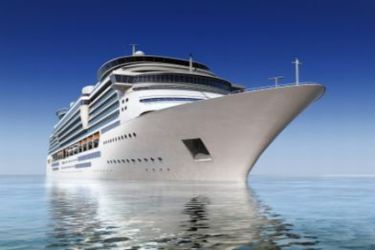Maritime laws are a distinct set of regulations that govern the navigable waters of the United States. Therefore, maritime matters are governed by federal law, not state personal injury law. Even knowing when the maritime law applies sometimes can involve questions requiring the particular expertise of a maritime lawyer. The best personal injury attorney who devotes his or her practice to injuries occurring on land will be familiar with state law concepts that these cases involve. Maritime matters, on the other hand, are governed by federal law, and you need an attorney who understands these laws.
 Virginia Maritime Lawyer Richard Serpe
Virginia Maritime Lawyer Richard Serpe
Maritime and personal injury attorney Richard Serpe has dedicated his legal career to protecting the rights of the injured. He knows how the insurers of commercial vessels will do everything they can to minimize their financial liability. And, they will do so even if it is at the expense of decent medical care for the injured.
After law school, Richard Serpe obtained a Master of Laws in Maritime & Admiralty (LL.M.) law from the Tulane University School of Law. Tulane’s School of Law is one of only a handful of universities in the U.S. offering maritime law degrees and is respected internationally. Richard Serpe has also obtained the highest ranking (Proctor) from the Maritime Law Association of the United States.
Awards and Recognition: Best Lawyers® : (2005 – Present), Super Lawyer : (2006 – Present), Martindale-Hubbell: AV Preeminent Rating, and Avvo.com : Rated 10/10 – “Superb.”
MARITIME NEGLIGENCE CAUSING INJURY AND DEATH
Maritime negligence poses a grave risk to individuals at sea, often resulting in injuries and tragic fatalities. This form of negligence can manifest in various ways, such as inadequate vessel maintenance, failure to adhere to safety protocols, or neglecting weather warnings. Crew members and passengers alike are vulnerable to the consequences of maritime negligence, as it can lead to collisions, capsizing, or other catastrophic incidents. Types of maritime negligence that lead to injury and death include:
- Lack of proper safety training
- Lack of proper occupational training – crew not properly trained for their job
- Poorly maintained, broken, or faulty equipment or machinery
- The employer fails to provide proper equipment for a crew member’s job/task
- Unseaworthy Vessel – when the vessel is not reasonably fit for its intended purpose
- Failure to hire a competent crew, negligent co-workers
- Collisions with other vessels
- Hoists, cranes, and derricks– struck by a boom or a moving load
- Winches – getting caught, being struck by a broken line or cable, tripping over lines and cables
- Moving parts and heavy machinery can cause injuries to hands, feet or limb if they are caught or crushed
- Traumatic brain and head injuries can occur from heavy falling items
- Failure to maintain electrical equipment, hazardous or flammable materials leading to fires and explosions
- Mechanical problems, missing safety equipment, lack of safety training can all result in falls overboard and drownings
- Electrocutions
Richard Serpe, an experienced maritime lawyer in Virginia, specializes in addressing a diverse range of cases within the maritime industry. His practice includes handling incidents such as barge accidents, tugboat accidents, commercial fishing accidents, dredging accidents, collision accidents, amputations, electrocution injuries, drowning and falling overboard, cruise ship accidents, crane and cargo accidents, as well as recreational boating accidents.
GENERAL MARITIME LAWS
“Maritime law” is the term that generally is used to refer to the system that regulates the relations between private parties (such as a claim resulting from personal injuries). The maritime law can apply to injuries that occur in, on, or even near the navigable waters, if certain conditions are met.
Historically, the concepts of maritime law that relate to injuries that occur on navigable waters is rooted in the obligation of the owner of a vessel to take care of his crew during the entire voyage. The owner had to provide the crew with room and board, transportation, medical care, and wages. These duties still hold true today, and as a result you, as an injured seaman or other person entitled to these protections, have certain important rights for which you may need an experienced maritime lawyer to ensure you get the full benefit of the law.
JONES ACT VS WORKERS’ COMPENSATION
Distinguishing itself from conventional workers’ compensation insurance, the Jones Act provides a distinctive avenue for maritime employees seeking compensation for personal injuries. Unlike traditional coverage, the Jones Act empowers seamen to file personal injury claims if they can establish that their employer failed to ensure a safe working environment.
Governed by the Merchant Marine Act of 1920, commonly known as the Jones Act, this federal maritime law allows injured or ill workers at sea to recover damages from their employers. To be eligible for these protections, a maritime worker must meet the Jones Act’s definition of a “seaman,” typically construed by U.S. courts as anyone engaged in work integral to a vessel’s purpose in navigable waters. Navigable waters, in this context, refer to waters capable of supporting commerce. Additionally, the worker must spend a “significant” portion of their time on the vessel, often interpreted as at least 30%, a criterion evaluated on a case-by-case basis considering the specifics of their employment.
MAINTENANCE AND CURE PAYMENTS
Seamen injured while at sea are entitled to maintenance and cure from employers. This doctrine is one of the oldest in maritime law, and it has been traced back nearly 1000 years. It does not matter if the illness or injury is work-related as long as it occurs or manifests itself while the seaman is “in service to the vessel”. As well, the injury cannot be caused by the seaman’s own willful conduct.
Maintenance and Cure is paid until the seaman is either fit to return to work, or has reached a point where additional medical care will not help. Sometimes, a seaman might be fit enough to return to work and will lose his right to maintenance. But, if additional medical care could help, he would be entitled to additional cure.
Maintenance
The idea is that a healthy seaman lives and works on the ship. So, if he is injured and can no longer enjoy the benefits of that home, he is entitled to room and board (maintenance).
Maintenance should include the cost of maintaining the seaman’s home. This includes rent or mortgage, taxes, insurance, and food. Historically, employers paid amounts around 8 to 12 dollars per day. If the employer tries to pay a low amount like this, an experienced maritime lawyer can seek to show the court your ACTUAL cost of maintenance and seek a higher award.
Cure
In addition, he is also entitled to medical care to cure him of the injury (cure).
Occasionally, an employer will try to force a seaman to use private medical insurance to pay the bills. This is not a good idea because often the “cure” obligation is more broad than that provided by insurance. Cure should cover all related medical care, and can also include transportation expenses to see the doctors. A maritime lawyer will fight to ensure that you can get the medical treatment that you deserve.
MARITIME WRONGFUL DEATH
The sudden, unexpected loss of a family member is never easy. Learning that their death might have been avoidable makes grief even harder to bear. Families come to the Law Offices of Richard J. Serpe, PC for guidance, help, and answers during the darkest days of their lives.
Unfortunately, in a maritime death case, no one can speak on the deceased’s behalf about how the accident happened. In some cases, there may not have been witnesses to the incident, either. Insurance companies know this and use it to their advantage.
If someone you love has died in a maritime accident, it’s important to hire an attorney to protect your rights and investigate the circumstances that led to tragedy. Your departed spouse, parent or child deserves a voice that will fight for justice.
“A SETTLEMENT THAT CHANGED MY LIFE”
“After a major maritime accident on the water, I was scared and didn’t know where to turn. The Law Offices of Richard Serpe and his great staff treated me with the utmost respect and attention that I needed. They treated me like a member of the family. I was awarded a settlement that changed my life and my family’s life, and I thank the law firm for that. Not only during the case, but after as well, the law firm has looked after me. If I had to recommend anyone, I would recommend Richard Serpe.” – Eddie S.
VIRGINIA MARITIME LAWYER
Hiring the Law Offices of Richard J. Serpe, PC, stands as a prudent choice for individuals seeking seasoned legal representation in the realm of maritime law in Virginia. With a wealth of experience and a solid reputation, our law firm is well-versed in the intricacies of maritime regulations and the complexities of personal injury claims at sea.
Led by Richard J. Serpe, a distinguished attorney with a track record of success in maritime law cases, our firm is committed to providing comprehensive and effective legal counsel. Clients can rely on the expertise of a team dedicated to navigating the nuances of the Jones Act and other relevant statutes, ensuring that their rights are protected and justice is pursued vigorously. Contact us for a free consultation.

 Virginia Maritime Lawyer Richard Serpe
Virginia Maritime Lawyer Richard Serpe